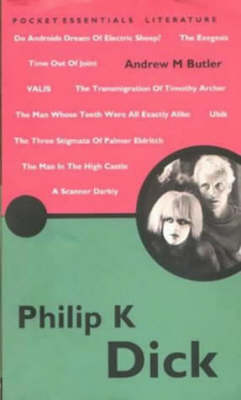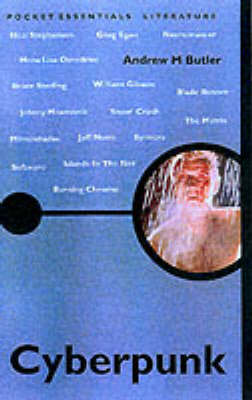Pocket Essentials
2 total works
Who was Dick? A freaked-out junkie who took too many drugs? An explorer of madness who go too close to his subject and ended up claiming to have met God? A practical joker? The most consistently brilliant SF writer in the world?
At a time when most SF was about cowboys in outer space, Dick explored the landscapes of the mind, conjured with fake realities and was able to make you believe six impossible things before breakfast. He embodied the counter-culture a decade before the 1960's.
Perhaps best known for Do Androids Dream Of Electric Sheep? - the novel which inspired Blade Runner - Dick's world is one where psychiatrists come in suitcases, and where God speaks through cat food commercials and comes in a handy aerosol can. And where you might be a figment of someone else's imagination...
As well as an introductory essay, this pocket sized volume reviews and analyses each of Philip K Dick's novels, and for those who want more there is a listing of the many other books and articles which have grappled with this genius.
Often considered to have been the creation of William Gibson in his seminal novel Neuromancer, the subgenre of cyberpunk can be traced back ito the history of science fiction from the 1950's to the late 1970's, and emerged in reaction to the world of the 1980's. Cyberpunk is a mix of hard science fiction, noir plotting, punk attitude and the cutting edge of culture. At the same time are some of the books open to charges of racism and sexism? Are these just toys for the boys or revolutionary manifestos?
This book looks in detail at the movers and shakers in the cyberpunk movement, from the early days of William Gibson and Bruce Sterling through feminist and British versions of cyberpunk to the post-cyberpunk or cyberpunk-flavoured fictions of Neal Stephenson, Greg Egan, Jeff Noon and Jack Womack. It also examines important cyberpunk films including Blade Runner and The Matrix.

